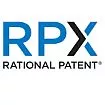New Mexico plaintiff UniQom LLC has launched litigation, asserting a single patent generally related to a "microprocessor for storing "digital identity data" and identifying the owner of a device. Six defendants have been hit: Dell (7:25-cv-00357) and LG Electronics (LGE) (7:25-cv-00358) in the Western District of Texas; and Acer (2:25-cv-00830), ASUSTek (2:25-cv-00831), Beckhoff Automation (2:25-cv-00832), and Micro-Star International (2:25-cv-00833) in the Eastern District of Texas. Targeted here is the provision of devices, including laptops (as to each defendant), that "include a measured boot feature in its operating system, which uses TPM capabilities" to verify the device's integrity.
A TPM (Trusted Platform Module) is described as a "microchip designed to provide basic security-related functions, primarily involving encryption keys". USPTO assignment records have yet to reflect an assignment of the sole asserted patent (7,493,497) away from inventor-controlled Identity Security LLC (f/k/a Integrated Information Solutions Corporation)—which previously litigated the patent along with three other members from the same five-patent family. The '497 patent issued in February 2009 with estimated priority in February 2000, based on the filing of a provisional application.
Last October, a Western District of Texas jury returned a verdict in Apple's favor. Identity Security had asserted the '497 patent, with others, but the jury decided that the plaintiff had failed to prove infringement of any of the asserted claims: claims 1, 3, 4, and 12 of the '497 patent; claims 1, 2, 3, 6, and 7 of the 8,020,008 patent; claim 5 of the 8,489,895 patent; and claim 1 of the 9,507,948 patent. The jury also determined that Apple had not shown any of the asserted claims were invalid. Identity Security had targeted the provision of the Secure Enclave system-on-chip (SoC) incorporated in various Apple devices, including Apple Watch, Apple TV, HomePod, iMac iPhone, and iPad-series products, as well as devices that feature the Apple T2 Security Chip
Aureliano Tan Jr. is the patents' named inventor. Identity Security was formed in Texas on December 3, 1997 as "Integrated Information Solutions Corporation", with Tan, variously identified as the entity's director and president, changing its name in December 2013. On social media, Tan—apparently based in Houston, Texas—holds himself out as having retired in 2015 after serving in various positions with ExxonMobil since December 2000; his prior work history reportedly includes positions with Unocal, American Airlines, and the University of Philippines. Tan transferred the patent family to Identity Security in separate April 2004 assignments.
Enter UniQom, an entity formed in New Mexico in April 2025 that now pleads ownership. Circumstances suggest control here by Jeffrey M. Gross. Gross is an inventor who turned to monetization years ago. Some of his cases have landed before Delaware Chief Judge Colm F. Connolly, the operation of whose standing orders has revealed that Gross has, at least in some of his litigation campaigns, proceeded with funding. For details, see "Volteon Cleans Up Prior Filing and Sues Two More" (February 2025).
Rabicoff Law LLC filed these complaints for UniQom. District Judge David Counts has been assigned to preside over the Dell and LGE cases; District Judge Rodney Gilstrap, over the rest. 8/21, Dell, LGE, Western District of Texas, Acer, ASUSTek, Beckhoff Automation, Micro-Star, Eastern District of Texas.
The content of this article is intended to provide a general guide to the subject matter. Specialist advice should be sought about your specific circumstances.


